
With the youngest post-90s becoming grown-ups, the post-80s are gradually stepping into their middle age and becoming the mainstays in the workplace. Fudan University Center for Population and Development Policy Studies published an investigation in “Shanghai Almanac 2017.” They investigated on the economic situations, family life and life style of nearly 1200 post-80 families and then came to some amazing conclusions. For example, nearly 30% of the post-80s haven’t changed jobs and the average housing area is 97.6 square meters. What’s more, about 60% of them don’t want a second child.
The personal incomes of the post-80s each year have been developing fast and steadily
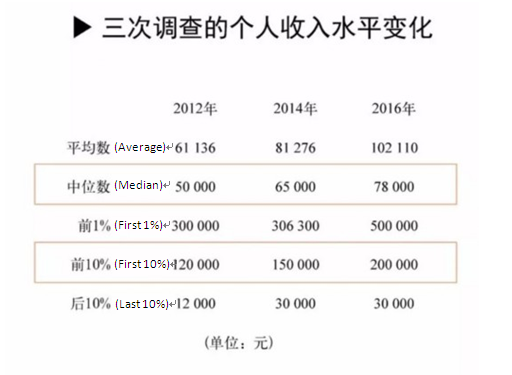
Three surveys on the personal incomes in 2012, 2014 and 2016
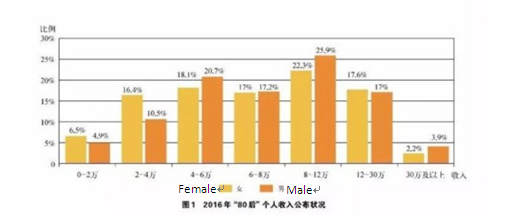
The personal incomes of the post-80s in 2016
From the charts we can see that the income situation of the post-80s is quite healthy. It is mainly because the average educational level of the post-80s is higher. One post-80 can acquire 14.7 years of education on average.

(From left to right: low income; medium income; high income; highest income) The relationship between the income level of the post-80s and the number of times they change their jobs
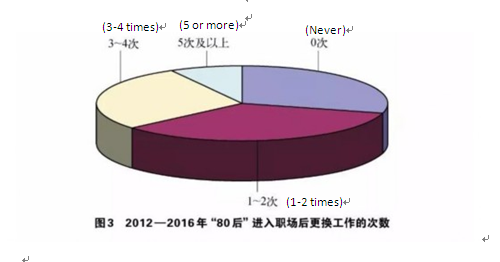
The number of times post-80s changed their jobs in 2012-2016
More obviously, most of the post-80s don’t change their jobs frequently. Those who earn high salaries change their jobs less frequently compared to those who earn less. However, among the upper-income groups, those who earn more than 200 thousand a year change their jobs more than others.
According to the interviewees, there are two main reasons to change jobs that are poor treatments and the attractions from other companies. These are the push and pull effects.
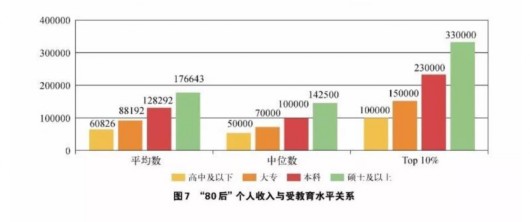
(From left to right: high school; junior college; bachelor; master) The relationship between the personal income and the educational level
The proportion of the upper-income groups has increased rapidly as the education level develops. And those who with a master degree account for 65% among the group.
It is no longer true that a husband should have a higher educational level than his wife
In an ordinary post-80 family, a husband earns 30 thousand more than his wife on average. Young parents are under pressure from economic burdens, children’s education, housing problems and their duty to care for the old. However, they take an optimistic attitude towards their future earning.
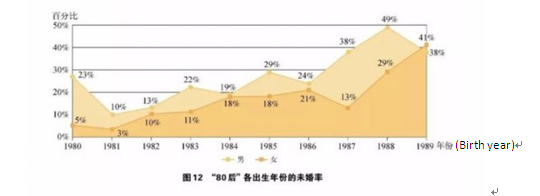
The unmarried rate of the post-80s in different age
It is shown in the chart that the post-80s tent to postpone getting married. Almost half of the couples got to know each other through the introductions from the elders and relatives. In nowadays’ marriages, husbands are usually older than their wives. However, it doesn’t mean that their educational level has to be higher. There are about 83% marriages in which wives are at the same level of education as their husbands’ or are even higher. What’s more, both males and females agree on the issue that wives can decide by themselves whether they want to get a job or not.
Males are more willing to have a second child than females
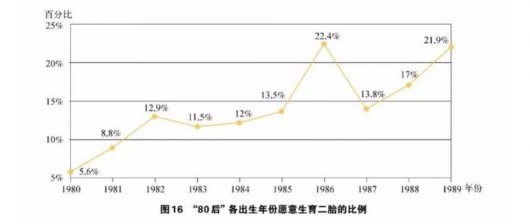
The proportion of those who are willing to have a second baby
There is a weak desire among the post-80 parents to have a second baby.
When being asked about the reasons, they listed the high cost, not enough area and not enough time as the top three reasons. As for why some of them still wanted to have a second baby, they replied that two children could accompany each other.
More than 60% of the post-80s’ parents will help their children with housework. And many post-80s will help their parents at least once a week and contact with them almost every day. They do well in taking care of their parents in return and show a high responsibility.
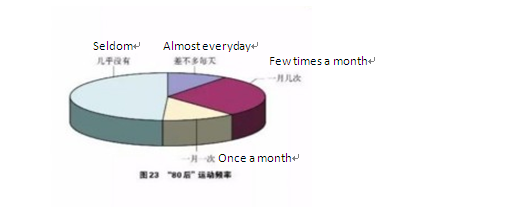
How frequently do the post-80s exercise
As for health, 70% of the interviewers think they are healthy both mentally and physically and are living a happy life. However the rest of them still suffer from inadequate sleep, unhealthy diet, drinking alcohol and smoking.
